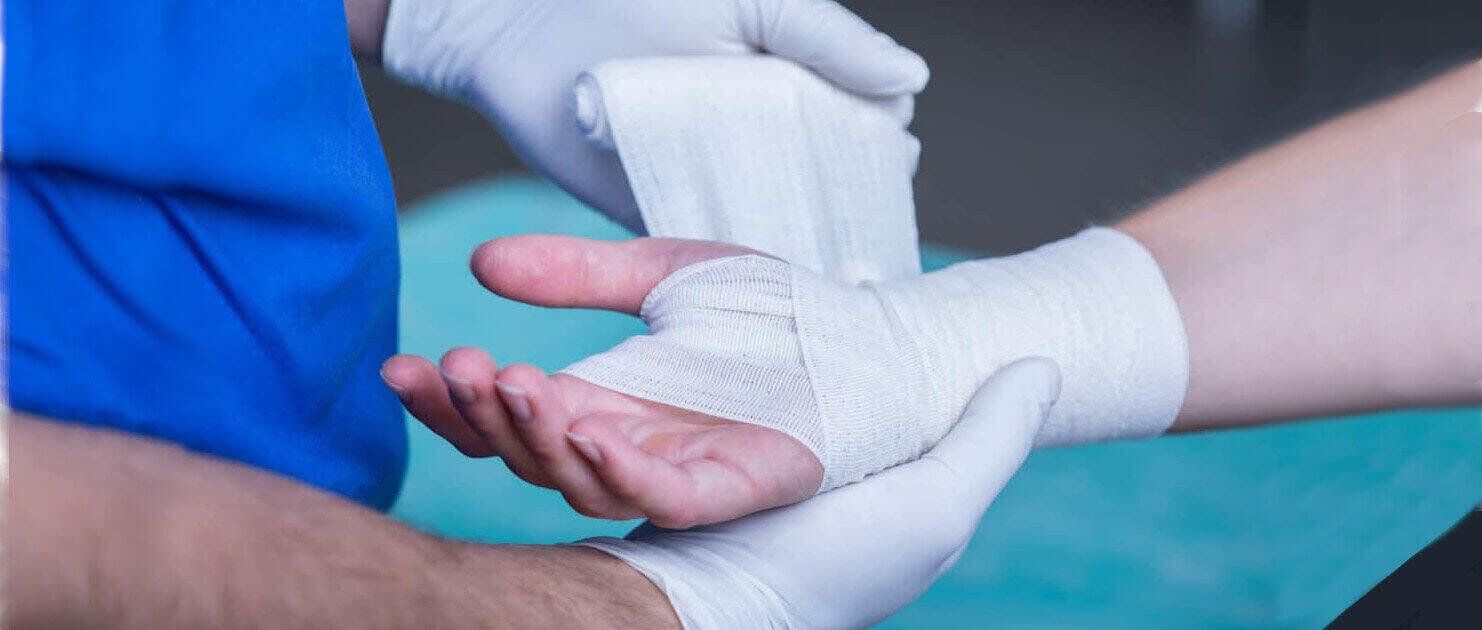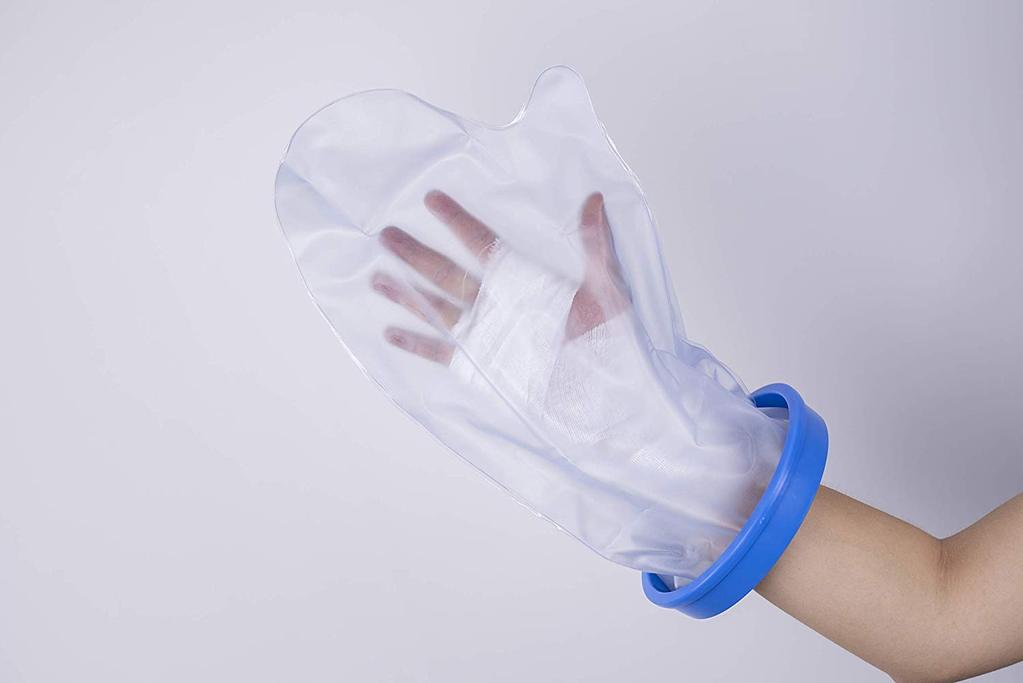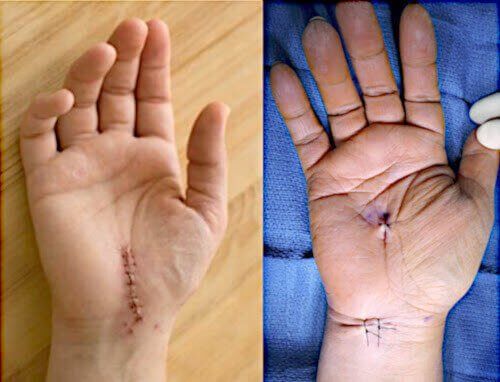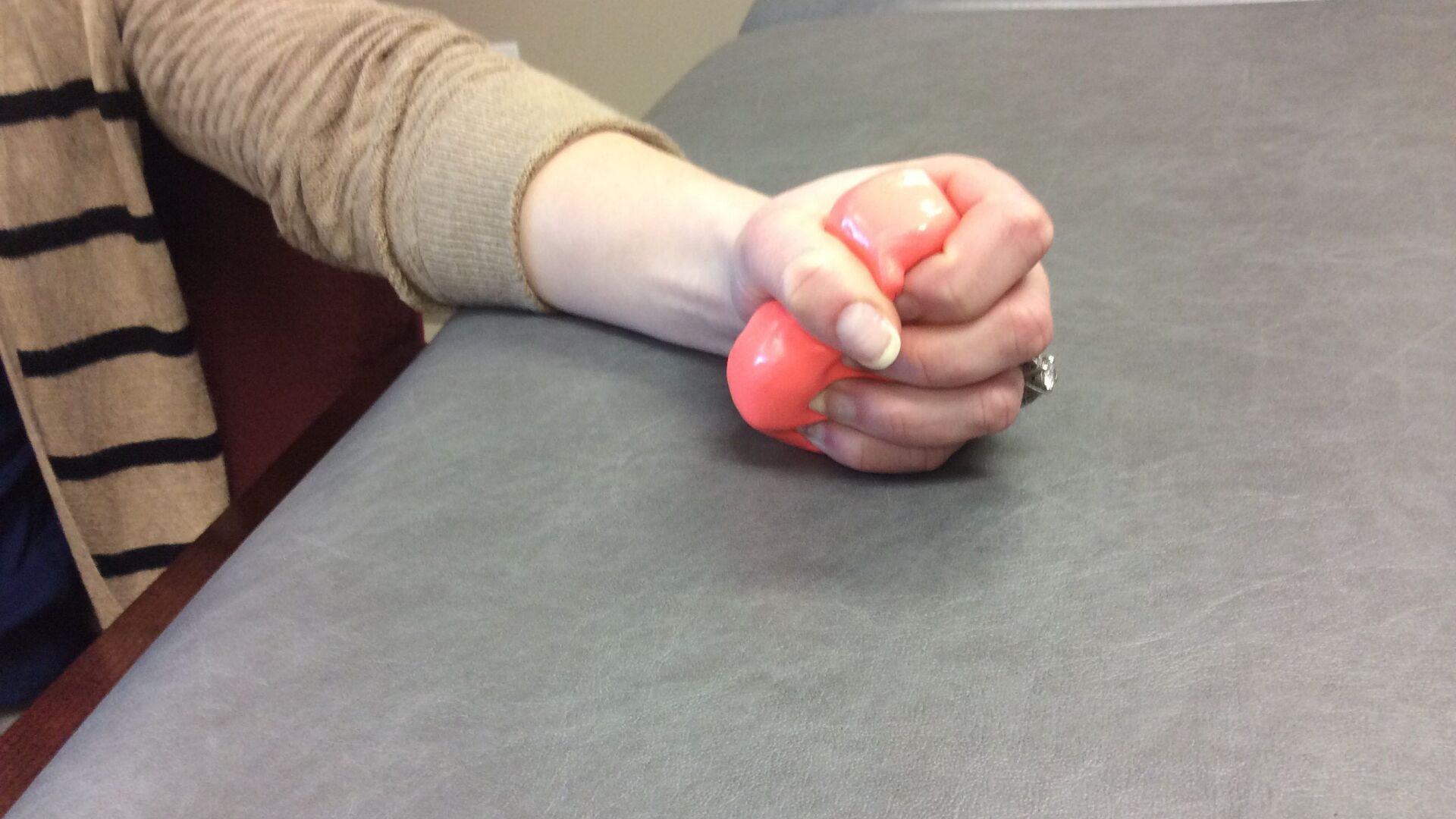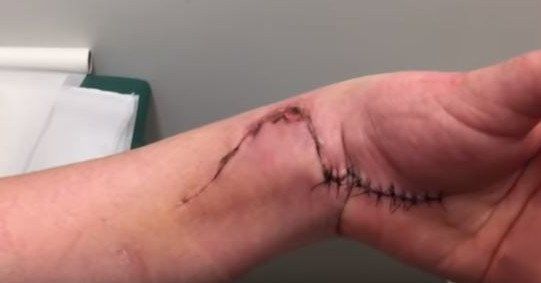Carpal Tunnel & Recovery from Surgery
From Dr. Z - Carpal tunnel syndrome specialist
Carpal Tunnel & Recovery from Surgery
With an operative treatment of carpal tunnel, recovery from surgery is faster and easier than only a decade ago. That's because surgical techniques are better and less traumatic. That means you need less time for your hand to get back to normal again. Here's what you need to know...
- FIND OUT: do you have carpal tunnel? No strings attached self-test.
Two basic types of carpal tunnel surgery
If you're reading this then you’re probably thinking about surgery to fix your
severe carpal tunnel symptomd. The idea of having hand surgery can be a scary thing. But your doctor says you need it, and now it’s time to educate yourself.
I’m happy to help with answers to your questions. A big one I hear a lot is, “What will happen during my recovery?”
Let’s skip the background information and get right down to what you can expect.
First, it’s important to know you will have one of two kinds of surgery. Both are methods of carpal tunnel release surgery.
- The most common operation is called open carpal tunnel release surgery. It requires 3-4 inch long incision in your palm. This procedure is more traumatic to your hand. That means more trauma to your hand and the actual carpal tunnel. Recovery from surgery takes longer. But this is the safer of the two techniques.
- The other operation is called endoscopic carpal tunnel release surgery. It requires only one or two small holes in your hand. That means less trauma to your skin and the actual carpal tunnel. Recovery from surgery takes less time. But of the two techniques, this is the less safe option.
The specific operation you have affects what happens during your recovery period. It especially affects your recovery time. Your doctor will tell you which they prefer performing, and why.
Whichever surgical technique is used for your carpal tunnel, recovery from surgery is the major part of the process. That's because it's the longest part. And your ultimate outcome (result) depends on many different variables during this time.
The most important variables are listed below. They include which surgery you had, how severe your symptoms were, your age, your overall health, and if any there were complications.
Now I'll describe what happens after you're wheeled out of the operating room and into the recovery room.
Surgery for carpal tunnel: recovery from surgery & anesthesia
After the operation, the doctor bandages your hand no matter which surgery procedure you had. That’s mostly to prevent infection. The bandages stay on until the stitches come out in about 10 days.
And whichever surgery you had, your hand will be numb right afterwards. You won't feel anything except a little pinching under the bandages. This is normal.
After you're discharged and go home your hand begins to "wake up" from the local anesthetic injection. This is when the pain rolls in.
Just moving you hand will be painful. Take the pain pills your doctor prescribed on time to help ease the discomfort.
To further ease discomfort, you must lie as still as possible for a couple days. Also keep your hand elevated to avoid blood clots and pooling. This causes more pain and possible clotting.
Make sure to avoid banging you hand against a table or chair. Not only is that painful, but it can rip the stitches. Then you'll need to have them removed and re-stitched.
One major thing to understand about surgery for carpal tunnel: recovery from surgery takes TIME. That means you'll have to adjust to simple activities like combing your hair, eating, and toileting.
For the first few days these will be painful. But the pain medicines will help a lot. So maintain the schedule your doctor gives you for taking the pain pills.
The pain will be much less in about 3-5 days. Now you can move around more and even shower. But showering requires a protective plastic bag over your hand. These are comedically available, although plastic trash bags work just as effectively.
Surgery for carpal tunnel: recovery from surgery by 10 days
The first week of carpal tunnel recovery from surgery is the roughest. You will have figured out the most comfortable adjustments to help ease the post-surgical pain. During this time you will also start sleeping well, even if sleep is helped by some pain medicines.
Most times, the stitches are removed between 7 and 10 days. You need to return to the surgical center for that. The bandages also come off permanently. That’s a BIG relief. Pain is also much less afterward.
A wrist brace replaces the bandages for the next 3-6 weeks. By now you can also drive a car.
Some doctors prefer beginning limited hand therapy at this point. It involves moving the fingers and hands slowly and gently. It gets rid of stiffness and promotes good range of motion.
The scar may feel tender or itchy. Use lotion to gently massage it. Doing so reduces discomfort and softens the scar. Many people apply vitamin E oil to lessen the scar size over time.
Recovery from surgery within 30 days
By the end of the month, most patients have started a regular hand therapy schedule. Actually, the focus of carpal tunnel recovery from surgery is hand rehabilitation. That requires regaining grip strength, range of motion, and dexterity.
Along with therapy, you'll gradually resume more and more hand activities. You don’t need the wrist brace during the day. But you must wear it at night.
During this period, a key factor about your recovery time is which type of surgery you had. The other major factor is whether or not the surgery was on your dominant hand. Those variables can extend your recovery time two or three fold.
Recovery from OPEN carpal tunnel release surgery
After this operation, more therapy and recovery time is needed. That's because your hand had undergone more surgical trauma. And if your dominant hand was operated on, aftercare and recovery will take longer. It will also take longer to resume your regular occupational duties.
Generally, with good and speedy healing, it takes patients 3-4 weeks to get back to work. In others it takes more than a month to return.
Recovery from ENDOSCOPIC carpal tunnel release surgery
Endoscopic surgery is much less traumatic than the open release type. And therefore the recovery time is less. Many patients can return to their work during this 30 day period.
Their job activity is usually limited. For instance, you must restrict any vigorous hand activities like lifting heavy objects or excessive typing.
About your job
It’s important to note that your job function is an important factor in recovery, no matter which surgery you had. Jobs that require a lot of hand work need re-thinking. That’s because your occupation is usually the reason you got carpal tunnel syndrome to begin with.
Performing fast, repetitive work with the hands is a known risk factor for carpal tunnel syndrome. Examples of high risk occupations are graphic artists, typists, hairdressers, assembly line workers, guitar players, and carpenters - just to name a few.
The National Institutes of Health says that for such high risk workers, only 21-23% of them who had hand surgery return to their former occupation.
Recovery from surgery beyond 30 days
Beyond 30 days, it’s hard to predict how quickly life will get back to normal after surgery for carpal tunnel: recovery from surgery is extremely variable from person to person.
That's why it's difficult to accurately answer some of the most common questions patients ask:
- "Will my hand eventually be completely normal again?"
- "What functions will or will not return in my hand?
- "Will symptoms come back again?"
All these answers vary greatly between individuals. That’s because several factors come into play. These factors can make your recovery a success or failure, and it all can go quickly or slower. Sometimes recovery is complete in just a few weeks. Other times it can drag out for a year or more, with poor results.
The variables that will surely make recovery take longer include:
- Complications of surgery (infection, nerve damage, etc.)
- Slow overall rate of healing
- Poor general health (especially having a chronic disease, like diabetes )
- Smoking
- Advanced age (generally, over 50 is higher risk)
- Poor emotional disposition
- Inability to commit to hand therapy
The above circumstances will affect every person’s recovery for the foreseeable future. You and your surgeon should discuss each one of these factors in detail. Review how YOUR particular circumstances might play a role.
More than anything, you don’t want surprises AFTER the operation. So get complete and satisfactory answers to every question right now.
Summary
Your surgery date is approaching. As you finally tackle this problem of carpal tunnel, recovery from surgery may be on your mind.
This is a period of uncertainty. So make sure you understand everything you can about your surgery and recovery period right now, before the operation day.




